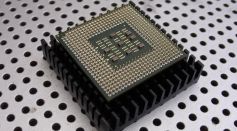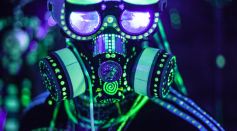TECH & INNOVATION

Wanda Fish Technologies Enters Collaboration with Tufts University

Far-UV Light Quickly Kills Active Bacteria Indoors, Makes Air as Safe as Outdoors, Proves Harm-Free Effects on Humans

Scientists Working on Converting Astronaut Urine Into Rocket Fuel Using Sunlight

Paralyzed Man Speaks and Asks for Beer Using His Mind Through Microchip Brain Implant

Smart Bra: The Future of Breast Cancer Early Detection Developed

Biodegradable Sensors Developed for Better, More Efficient Brain Monitoring But Second Surgery to Remove the Implant Not Necessary

Laser Surgery in Medical and Cosmetic Procedures: How Does This Light Technology Alter and Repair the Body?

Suzuki Collaborates With SkyDrive to Deliver Flying Taxi Service in Osaka in 2025

Artificial Intelligence Act in Europe Have Fails to Consider Powerful AI Systems

How the AI-Powered GGWP System Helps Control, Handle Toxic Gamer Behavior in Terms of In-Chat Abuse

Charging Electric Cars Could Become As Fast As 3 Minutes With Quantum Battery Technology, Study Claims

Google Effect AKA ‘Digital Amnesia’ Makes People Forget, Rather Than Remember Information Searched Online

AI-Powered Algorithm Developed Thousands of Deadly Biological Weapons in Just 6 Hours!

ABG+® Aged Black Garlic Moves Into Gummies Space
Most Popular

The Science of Autophagy: Unlocking Fasting, Longevity, and Cellular Repair

10 Smartest Animals on Earth: Incredible Intelligence, Tool Use, and Problem-Solving Skills

7 Endangered Species Thriving Again: How Conservation Science Is Driving Remarkable Comebacks

7 Incredible Places in the Universe Where Scientists Believe Alien Life Could Exist





